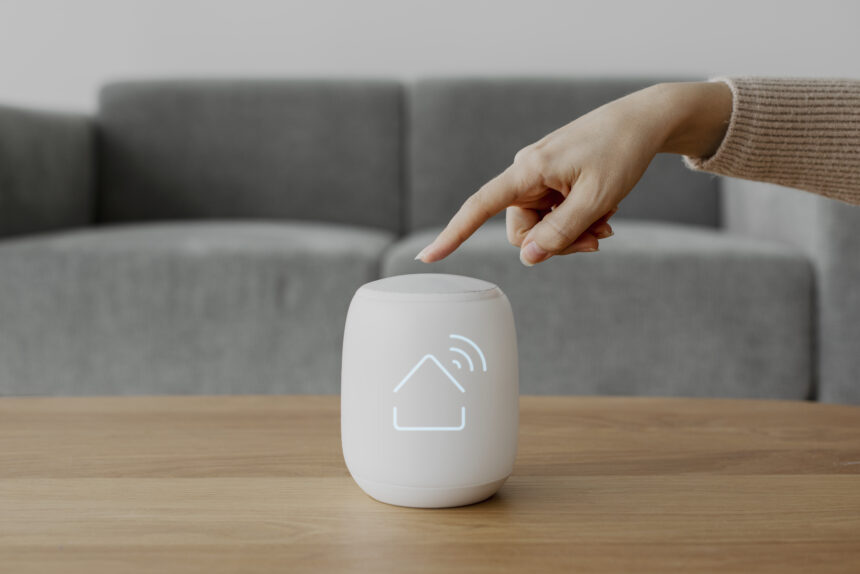The rise of smart home technology is transforming the real estate market. As homeowners integrate devices that enhance security, energy efficiency, and convenience, property values are being affected in significant ways. Buyers are now prioritizing homes equipped with smart technology, and sellers are increasingly investing in upgrades to attract higher offers.
In this article, we’ll explore how smart home innovations are shaping the future of real estate and their direct impact on property values.
1. What Are Smart Homes?
A smart home is a property equipped with connected devices that automate and enhance various aspects of daily living. These systems are controlled via smartphones, voice assistants, or automated schedules, offering homeowners greater efficiency and convenience.
Key Features of Smart Homes:
- Smart Security Systems – Video doorbells, smart locks, motion detectors, and surveillance cameras.
- Automated Climate Control – Smart thermostats that adjust temperatures based on user habits.
- Energy-Efficient Lighting – Smart bulbs and motion-activated lighting to save electricity.
- Voice-Controlled Assistants – Devices like Amazon Alexa, Google Assistant, and Apple HomeKit.
- Home Automation Systems – Integrated controls for appliances, entertainment, and even irrigation systems.
Smart home technology is no longer a luxury but a mainstream feature influencing home desirability and market value.
2. How Smart Homes Increase Property Value
As smart home adoption grows, buyers are willing to pay more for homes with pre-installed smart systems. Here’s how these technologies enhance property value.
Higher Demand from Buyers
- Modern buyers, particularly millennials and Gen Z, expect homes with built-in smart features.
- Studies show that homes with smart technology sell faster and at higher prices than traditional homes.
Energy Efficiency and Cost Savings
- Smart thermostats, energy-efficient lighting, and solar integrations lower utility bills, making homes more attractive.
- Many buyers prioritize eco-friendly homes, increasing demand for smart energy solutions.
Enhanced Security and Safety
- Smart locks, surveillance cameras, and alarm systems make homes safer, increasing buyer confidence.
- Insurance companies often offer discounts for homes with security technology, making them more cost-effective.
Convenience and Modern Appeal
- Smart home automation offers a seamless lifestyle with voice control, remote access, and AI-driven automation.
- Many buyers are willing to pay a premium for a home with integrated smart systems that simplify daily tasks.
3. Smart Home Features That Boost Resale Value
Not all smart home upgrades have the same impact on property value. Certain high-tech features are particularly desirable among homebuyers.
Top Smart Home Features That Increase Value:
| Smart Feature | Benefit | Impact on Home Value |
|---|---|---|
| Smart Thermostats | Reduces energy costs | High – Energy savings appeal to buyers |
| Smart Security Systems | Enhances safety & insurance discounts | High – Increases buyer confidence |
| Smart Lighting | Improves ambiance & efficiency | Moderate – Adds convenience but depends on buyer preference |
| Smart Home Hubs | Centralizes automation | Moderate – Attracts tech-savvy buyers |
| Smart Appliances | Increases convenience | Low – May become outdated quickly |
| Voice-Controlled Assistants | Hands-free home management | Low – Often personal preference |
For homeowners looking to increase resale value, investing in security and energy-efficient features yields the best return on investment.
4. The Future of Smart Home Technology
As AI and IoT (Internet of Things) continue to advance, smart homes will become even more sophisticated. Here’s what to expect in the coming years.
Emerging Trends in Smart Homes:
- AI-Driven Automation – Homes that learn homeowner habits and adjust settings automatically.
- Voice-Activated Everything – Voice control expanding beyond assistants to lights, locks, and kitchen appliances.
- Sustainable Smart Homes – Solar integration, water-saving systems, and AI-driven energy management.
- Smart Home Standardization – Unified systems ensuring seamless integration across brands (Matter protocol).
- 5G-Powered Connectivity – Faster, more reliable smart home networks.
These advancements will further enhance home efficiency and security, making smart features a must-have rather than a luxury.
5. Smart Homes and the Real Estate Market
The real estate market is adapting to the increasing demand for smart homes. Here’s how realtors, sellers, and buyers are responding.
For Home Sellers:
- Installing key smart features can increase home value by 3-5%.
- Marketing a home as “smart-equipped” attracts more potential buyers.
- Highlighting energy savings and security benefits can make a listing stand out.
For Home Buyers:
- Many buyers expect at least basic smart home features, especially in new builds.
- Smart security and energy-efficient features are among the top considerations for new homeowners.
- Some buyers may negotiate higher prices for homes that already have smart technology installed.
For Real Estate Agents:
- Agents are learning about smart home tech to educate clients on features and value.
- Listings that include “smart home features” often receive more interest and higher offers.
6. Potential Downsides of Smart Homes
While smart homes offer many benefits, they also come with challenges that homeowners should consider.
Common Concerns with Smart Home Technology:
- Privacy Risks – Smart devices collect user data, raising cybersecurity concerns.
- Technology Depreciation – Newer models quickly replace older smart home systems.
- Upfront Costs – High-quality smart features can be expensive to install.
- Compatibility Issues – Some devices don’t integrate well with others, causing frustration.
Despite these challenges, the benefits of smart homes generally outweigh the drawbacks, especially for buyers looking for convenience and long-term savings.
7. Should You Upgrade Your Home with Smart Technology?
If you’re a homeowner considering selling your property or increasing its value, adding strategic smart features can be a great investment.
When to Invest in Smart Home Upgrades:
✔️ If you’re planning to sell soon, focus on security and energy-efficient features.
✔️ If you want long-term savings, install smart thermostats, lighting, and solar integration.
✔️ If you live in a competitive real estate market, smart home features can give you an edge.
When Smart Upgrades May Not Be Worth It:
❌ If you’re in an older home where upgrades require costly rewiring.
❌ If you’re in a low-demand market where buyers don’t prioritize smart technology.
❌ If you don’t plan to sell in the next 5–10 years, as technology evolves quickly.
Final Thoughts: Are Smart Homes the Future of Real Estate?
The future of smart homes is bright, and their impact on property value is undeniable. Homebuyers increasingly expect energy-efficient, secure, and automated living spaces, making smart features a worthwhile investment for sellers.
While there are some privacy and technology lifespan concerns, the benefits—higher resale value, lower energy costs, and enhanced security—make smart homes a top choice in today’s real estate market.
As smart technology continues to evolve, homes that embrace automation and efficiency will remain more desirable and valuable than those that don’t.
FAQs
1. Do smart homes really increase property value?
Yes, homes with energy-efficient and security-focused smart technology often sell for higher prices and attract more buyers.
2. What are the most valuable smart home features?
Smart security systems, thermostats, and lighting provide the best return on investment.
3. Is it expensive to convert a home into a smart home?
Basic upgrades like smart locks and thermostats cost a few hundred dollars, while full automation systems can cost thousands.
4. Are smart home devices secure from hackers?
While most devices have strong security features, homeowners should use secure passwords, software updates, and encrypted Wi-Fi to reduce risks.
5. Will smart home technology become outdated quickly?
Technology evolves, but high-quality smart home systems are designed to receive updates and remain functional for years.






